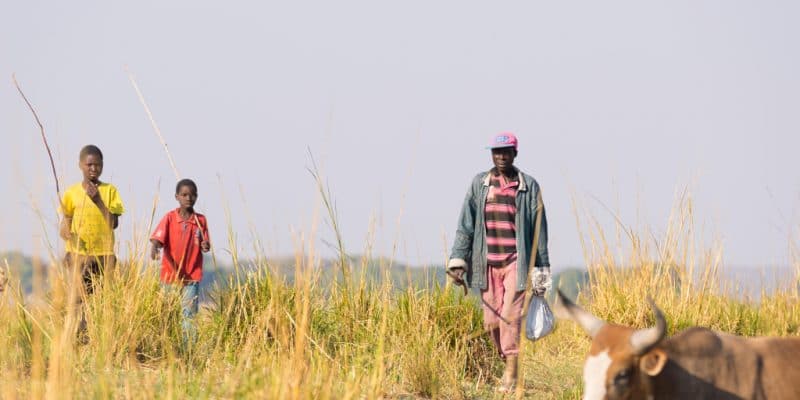The global network of humanitarian agencies Start Network is purchasing a $2.5 million insurance policy from African Risk Capacity (ARC). The initiative, supported by the German Development Agency (KfW), will cover hundreds of thousands of Zimbabweans against the risk of drought during the 2021/2022 agricultural season.
Like other East African countries, Zimbabwe is prone to drought. To cope with this situation, the Zimbabwean government and human organizations are focusing on anticipation. Start Network, a global network of humanitarian agencies, announced the purchase of a $2.5 million insurance policy from African Risk Capacity (ARC), a specialized agency of the African Union (AU) created to help African governments improve their capacity to plan for, prepare for and respond to extreme weather events and natural disasters.
Start Network is a network of 55 member agencies, including 20 in Zimbabwe. The recently underwritten policy is supported by Action Aid Zimbabwe, Action Against Hunger, Catholic Agency for Overseas Development (CAFOD), Catholic Relief Services, GOAL, Plan International, Tearfund, Trocaire and World Vision Zimbabwe (WVZ). The initiative is also supported by Zimbabwe Project Trust (ZIMPRO), Evangelical Fellowship of Zimbabwe (EFZ), Family AIDS Counselling Trust (FACT) Zimbabwe, Nutrition Action Zimbabwe (NAZ), Simukai Children Protection and Caritas Bulawayo/Gokwe/Hwange/Masvingo/Mutare.
Impact on 800,000 Zimbabweans
According to ARC, the insurance policy that Start Network has taken out is based on parametric insurance. Specifically, the insurer (ARC) pays out before a crisis, based on pre-agreed scientific triggers, such as rainfall data. Unlike the standard humanitarian model, in which response agencies only receive funds after a crisis has occurred, this approach allows Zimbabwean governments and their partners to plan and respond before the worst effects of a drought are felt.
Read also- SOMALIA: when drought threatens the food security of one in four inhabitants
“All planning will be done in collaboration with the government of Zimbabwe and the World Food Programme (WFP), which has also signed a policy with African Risk Capacity. If the policies are paid for, the Zimbabwean government, Start Network members and other development partners and non-governmental organizations (NGOs) will implement complementary support programs to ensure that as many of the most at-risk people as possible receive support,” ARC promises. Its insurance policy covers 800,000 Zimbabweans against the risk of drought during the 2021/2022 agricultural season.
Frequency of drought events increases
A similar policy was purchased in Senegal for the 2019/2020 agricultural season and a $10.6 million pay-out supported more than 300,000 people. The implementation of this specific insurance policy is funded by the German Ministry for Economic Cooperation (BMZ) through Kreditanstalt für Wiederaufbau (KfW), the German development agency, as well as the UK Foreign, Commonwealth & Development Office (FCDO).
In 2019, drought affected the food security and livelihoods of 45 percent of Zimbabwe’s rural population, according to the International Atomic Energy Agency (IAEA). This situation could worsen in the coming years, with the changing rhythm of the seasons accentuated by climate change.
Jean Marie Takouleu







